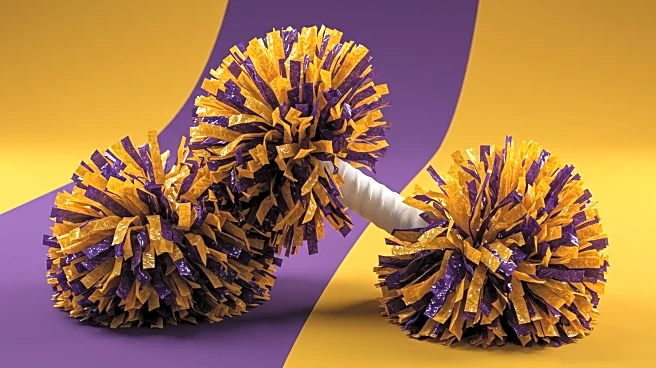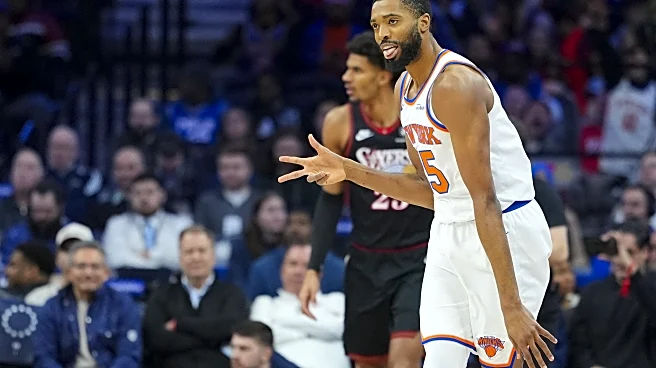What's Happening?
The Minnesota Vikings recently unveiled their new cheerleading squad, which includes two male performers, Blaize Shiek and Louie Conn. This announcement sparked a range of reactions online, from support to calls for boycotts, and even homophobic slurs from a former NFL player. Despite the backlash, the Vikings have stood firm in their decision, emphasizing that male cheerleaders are not new to the NFL. As of the 2025 season, at least 11 NFL teams have male cheerleaders, with the Los Angeles Rams being the first to include them in 2018. The Vikings highlighted that Shiek and Conn earned their spots through a competitive process, similar to how football players earn their positions on the team.
Why It's Important?
The inclusion of male cheerleaders in the NFL challenges traditional notions of masculinity and reflects broader societal shifts towards inclusivity. This development is significant as it confronts outdated ideas about gender roles in sports, a domain often used to enforce rigid definitions of masculinity. The backlash against male cheerleaders reveals underlying fears about visibility and change, echoing broader cultural tensions around LGBTQ+ rights and gender expression. By embracing diversity, the Vikings and other teams are not only supporting their fans but also promoting a more inclusive environment in professional sports.
What's Next?
The controversy surrounding male cheerleaders in the NFL is likely to continue as more teams adopt inclusive practices. Stakeholders, including fans, players, and LGBTQ+ advocacy groups, may engage in further discussions about gender roles in sports. The NFL's response to this issue could influence public perception and policy regarding inclusivity in sports. As societal attitudes evolve, professional sports teams may increasingly reflect these changes, potentially leading to broader acceptance and celebration of diversity in sports.
Beyond the Headlines
The introduction of male cheerleaders in the NFL highlights deeper cultural shifts regarding masculinity and inclusivity. This move challenges the traditional use of sports as a tool to define and control gender norms. It also underscores the power dynamics at play in public spaces, where visibility and representation are contested. The Vikings' decision to include male cheerleaders is part of a larger movement towards liberation and acceptance, reflecting the fluidity of masculinity and the potential for sports to unite diverse communities.










